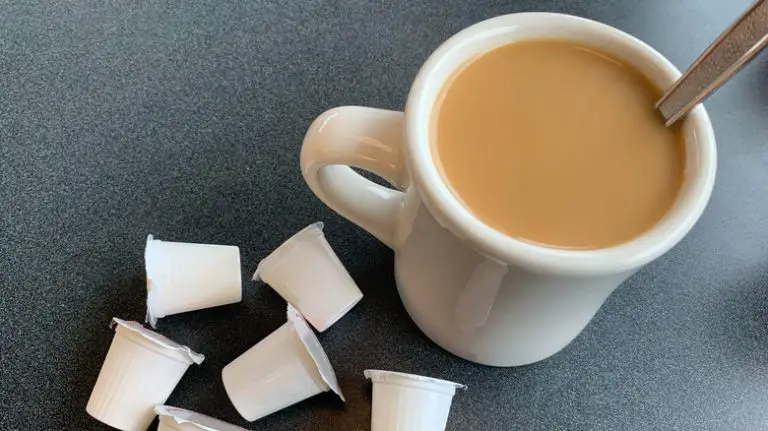Can Expired Coffee Make You Sick

The aroma of freshly brewed coffee is a morning ritual for millions, a comforting start to the day. But what happens when that precious bag of beans has been sitting in the pantry, past its "best by" date? Does it just lose its flavor, or could that expired coffee actually make you sick? This is a question that often brews in the minds of coffee lovers, leaving many wondering if they should risk that old batch for the sake of their caffeine fix.
The central question is: Does expired coffee pose a health risk, or is it merely a matter of diminished taste? While drinking truly *expired* coffee is unlikely to cause serious illness, the degradation in quality and potential for mold growth can significantly impact your coffee experience and, in some cases, lead to mild discomfort.
Understanding Coffee Shelf Life
Coffee, whether whole bean or ground, isn't like milk or meat; it doesn't "spoil" in the traditional sense. The "best by" date on a coffee bag is more about peak flavor than safety. It indicates the period when the coffee will retain its optimal aroma and taste characteristics.
The main enemies of coffee are air, moisture, heat, and light. These factors contribute to a process called oxidation, which degrades the volatile compounds that give coffee its distinctive flavor and aroma. Roasted coffee beans are porous and readily absorb moisture and odors from their surroundings, which also degrades their flavor.
Here's a closer look at how different forms of coffee are affected:
Whole Bean Coffee
Whole beans retain their freshness longer than ground coffee because they have less surface area exposed to air and moisture. Stored properly in an airtight container in a cool, dark place, whole beans can maintain their quality for several weeks after the "best by" date.
Ground Coffee
Ground coffee, with its increased surface area, deteriorates much faster. It's best consumed within a week or two of opening the package to enjoy its optimal flavor. Pre-ground coffee, often found in supermarkets, may already be past its prime by the time you purchase it.
Instant Coffee
Instant coffee, due to its low moisture content, has the longest shelf life. While it may lose some of its potency and flavor over time, it's unlikely to become unsafe to drink for a considerable period, provided it's stored properly.
The Potential for Mold Growth
One of the primary concerns with expired coffee is the potential for mold growth. Coffee beans, like any agricultural product, can be susceptible to mold contamination during harvesting, processing, or storage.
Aspergillus, a common type of mold, can produce mycotoxins, such as ochratoxin A (OTA). OTA is a toxin that can be harmful to human health if consumed in significant quantities over time. Fortunately, roasting coffee beans at high temperatures can reduce the levels of OTA present.
Proper storage is crucial to prevent mold growth. Keep your coffee in an airtight container in a cool, dry place to minimize moisture exposure. If you notice any visible mold, discoloration, or a musty odor, it's best to discard the coffee immediately.
Health Risks vs. Taste Preferences
While drinking expired coffee might not land you in the hospital, it's important to acknowledge the potential drawbacks. The most common consequence is simply a subpar coffee experience.
The flavor will likely be stale, bitter, and lacking the complex nuances you expect from fresh coffee. Some people might experience mild gastrointestinal upset, such as heartburn or nausea, from drinking stale coffee, especially if they have sensitive stomachs.
The risk of significant health problems from drinking expired coffee is generally low, especially if you're consuming it in moderation. However, individuals with compromised immune systems or sensitivities to mold should exercise extra caution.
Expert Opinions and Research
According to the National Coffee Association (NCA), proper storage is the key to preserving coffee's quality and preventing the growth of mold. They recommend storing coffee in an airtight container, away from heat, light, and moisture.
The Specialty Coffee Association (SCA) emphasizes the importance of freshness in achieving the best coffee flavor. They advocate for buying coffee from reputable roasters who provide clear information about roast dates and storage recommendations.
Research on ochratoxin A levels in coffee has shown that the roasting process significantly reduces its presence. A study published in the Journal of Agricultural and Food Chemistry found that roasting can reduce OTA levels by up to 90%, minimizing the risk associated with mold contamination.
Tips for Storing Coffee Properly
To ensure your coffee stays fresh for as long as possible, follow these simple storage tips:
- Store in an airtight container: This prevents air and moisture from entering.
- Keep it in a cool, dark place: Away from direct sunlight and heat sources like the stove.
- Avoid storing in the refrigerator or freezer: Temperature fluctuations can create condensation, leading to moisture buildup.
- Buy whole beans and grind them fresh: Grind only what you need for each brew.
- Purchase from reputable roasters: Look for those who provide roast dates and storage recommendations.
When to Toss It
Knowing when to discard expired coffee is crucial. Trust your senses: If the coffee smells musty, moldy, or otherwise off, it's best to err on the side of caution and throw it away. Visible mold growth is an obvious sign of spoilage.
If the coffee tastes exceptionally bitter, stale, or otherwise unpleasant, even after adjusting your brewing method, it's likely past its prime. Ultimately, the decision of whether to drink expired coffee comes down to personal preference and risk tolerance.
Remember, it's always better to be safe than sorry. When in doubt, toss it out and treat yourself to a fresh bag of beans.
A Final Brew of Thought
While the prospect of drinking expired coffee might not be a grave health concern, it's a reminder to appreciate the simple pleasures in life. Freshly roasted coffee, brewed to perfection, is a sensory experience that deserves to be savored. Storing your coffee properly and paying attention to its "best by" date ensures that you're enjoying it at its peak.
So, next time you reach for that bag of coffee, take a moment to consider its freshness. A little bit of care can go a long way in ensuring a delicious and satisfying coffee experience, free from the anxieties of staleness or potential mold. And if you're ever in doubt, remember, a fresh cup is always worth the investment.
.jpg)

















